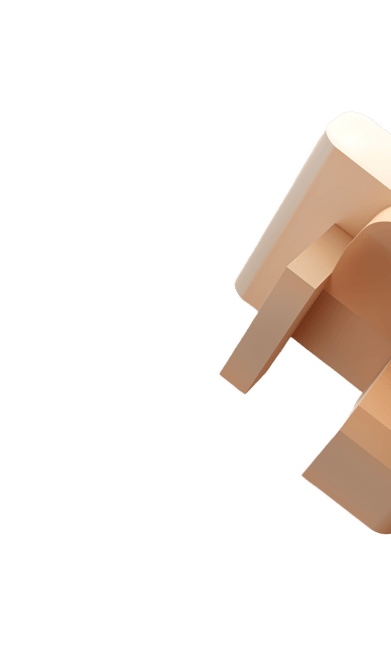Best tracker mortgages
Is a tracker mortgage a good idea now? Find out and compare tracker mortgage rates.
Lower interest rates
Some tracker mortgage interest rates are currently lower than fixed or standard variable mortgages.
Flexibility with lower ERCs
Tracker mortgages often have cheaper early repayment charges, or sometimes none at all.
If the base rate drops...
...so does your mortgage rate. Meaning you'll pay less.
What is a tracker mortgage?
A tracker mortgage is a kind of variable rate mortgage that changes according to a base rate; this is generally the Bank of England base rate.
This means that a tracker mortgage’s interest can fluctuate depending on whether the base rate goes up or down.
How does a tracker mortgage work?
The interest your lender charges on a tracker mortgage is the base rate plus or minus a certain percentage.
Here’s an example: if the current base is 5.25%* and a lender tracks at +1%, this means your interest rate will be 6.25%.
If the base rate rises to 5.75%, then your tracker rate will increase in line with this, by 0.5%.
Your tracker mortgage could include a minimum interest rate or 'collar'. The interest rate will never fall below this so the lender will always make some profit.
Some lenders will also have a cap to restrict the maximum rate.
* Correct as of January 2024
Some tracker mortgages have no Early Repayment Charges (ERCs). This allows you to make larger overpayments or repay the mortgage in full without being charged a fee.
Check with your lender to find out whether your tracker mortgage has an early repayment charge.
Some tracker mortgages have a ‘collar’, which is the lowest limit of interest you will pay for your mortgage. This means your mortgage interest rate won’t fall lower than the collar, even if the base rate does.
Not every tracker mortgage will have a collar. Check the small print of your mortgage deal to see whether a collar is in place.
A tracker mortgage’s cap is the opposite of the collar. This means there is an upper limit to what amount of interest you will pay, and even if the base rate goes above this, your mortgage rate will not.
Is a tracker mortgage a good idea?
Like any mortgage, trackers come with their pros and cons. Some advantages of a tracker mortgage are:
They can offer more flexibility because most tracker mortgages do not have early repayment charges (ERCs). This means you have the option of getting out of your tracker deal before the end of your agreed term, without paying a hefty fee.
They can be cheaper than fixed rates as tracker mortgage introductory rates can often be cheaper than a lot of other mortgages
They are low when the base rate is because they track a base rate (either the Bank of England or Libor)
However, a tracker mortgage might not be the best choice for you if you:
Need certainty about how much you will be paying each month as a tracker rate could go up or down as soon as the base rate changes
Are worried that the base rate could increase and leave you with a mortgage payment you cannot budget for or afford
How long does a tracker mortgage last?
2-year tracker mortgage
Products usually last 2 or 5 years, but you can also get 3-year, 10-year and ‘lifetime trackers’.
A 2-year tracker means you’ll be tied into a mortgage deal that will track the base rate for 2 years. After this period you will likely wish to remortgage to a new deal.
Lifetime tracker mortgage
Lifetime tracker mortgages track the base rate for the lifetime of the mortgage, which is generally about 25 years.
This type of mortgage is better for people who do not mind the uncertainty of what their mortgage payment will be month on month.
Tracker or fixed mortgage?
Both tracker and fixed-rate mortgages are popular choices for home buyers, but they are very different.
Interest rates: The most significant difference between trackers and fixed-rate mortgages is how the interest works.
Fixed rates are set and remain the same for the entire fixed period (whether 2-year, 5-yea or 10) whereas a tracker changes depending on the base rate.
Different introductory rates: Tracker mortgage introductory rates tend to be cheaper than those for fixed-rate mortgages because fixed rates offer more security.
Early repayment charges (ERCs): Tracker mortgages often have lower or even no Early Repayment Charges (ERCs), which gives you better flexibility if you want to change deals. Fixed-rate ERCs tend to be quite expensive.
Is a tracker mortgage a good idea now? (and other FAQs)
A tracker mortgage can be a more flexible mortgage option for anyone who doesn't want to be tied into a rate for a set time.
Tracker mortgages are most popular when interest rates are low or falling lower.
The Bank of England base rate has been steadily increasing since December 2021, which means tracker interest rates have also been on the rise.
Despite this, some tracker rates are currently lower than variable and fixed rates. Test out our comparison tool and see for yourself.
Both tracker and fixed-rate mortgages are popular choices for home buyers, but they are very different.
Interest rates: The biggest difference between a tracker and fixed-rate mortgages is the way the interest works.
Fixed rates are set and stay the for the whole mortgage term, whereas a tracker changes depending on the base rate.
Different introductory rates: Tracker mortgage introductory rates tend to be cheaper than those for fixed-rate mortgages because fixed rates offer more security.
Early repayment charges (ERCs): Tracker mortgages often have lower or even no Early Repayment Charges (ERCs), which gives you better flexibility if you want to change deals. Fixed-rate ERCs tend to be quite expensive.
You should shop around to see what deals are available which are suited to your needs. A mortgage broker will be well equipped to help do this, as they have access to deals from all kinds of lenders.
Mortgage Calculator
Calculate what you could borrow using our simple mortgage calculator.
Mortgage Rates
See the latest fixed, variable, and interest-only mortgage rates from 100+ lenders.
Get a Mortgage in Principle
Get your free Mortgage in Principle to show estate agents you're a serious buyer.
What people are saying about Better.co.uk...
Get a mortgage with Better.co.uk today
Better.co.uk is a fee-free mortgage broker
4.8-star Trustpilot rating from over 9,000 reviews
Compare mortgage deals from over 100 lenders
Get matched with the right legal team with SmartBuyer
Fund a big expense with a Homeowner Loan

Important info & marketing claims
You may have to pay an early repayment charge to your existing lender if you remortgage. Your savings will depend on personal circumstances.
Your home may be repossessed if you do not keep up repayments on your mortgage.
*89% of customers will be better off using Better.co.uk rather than going direct with their lender. Read more on our marketing claims page.
We can't always guarantee we will be able to help you with your mortgage application depending on your credit history and circumstances.
Average mortgage decision and approval times are based on Better.co.uk's historic data for lenders we submit applications to.
Tracker rates are identified after comparing over 12,000 mortgage products from over 100 mortgage lenders.
As of January 2023, Better.co.uk has access to over 100 lenders. This number is subject to change.
For buy-to-let landlords, there's no guarantee that it will be possible to arrange continuous letting of a property, nor that rental income will be sufficient to meet the cost of the mortgage.


